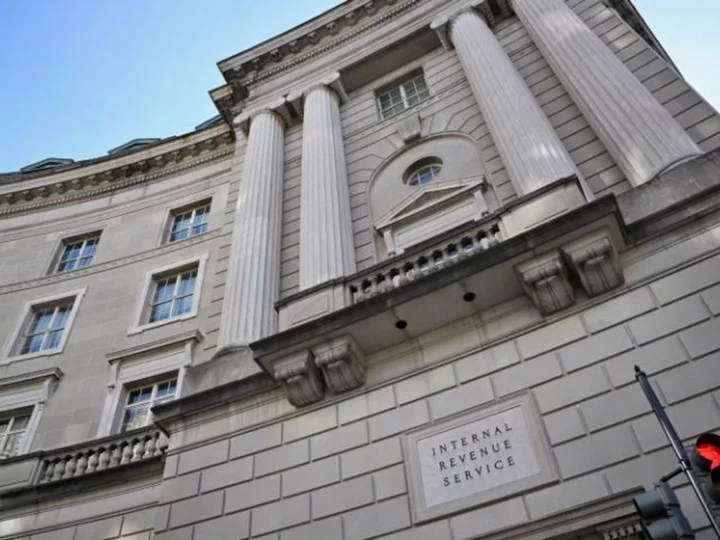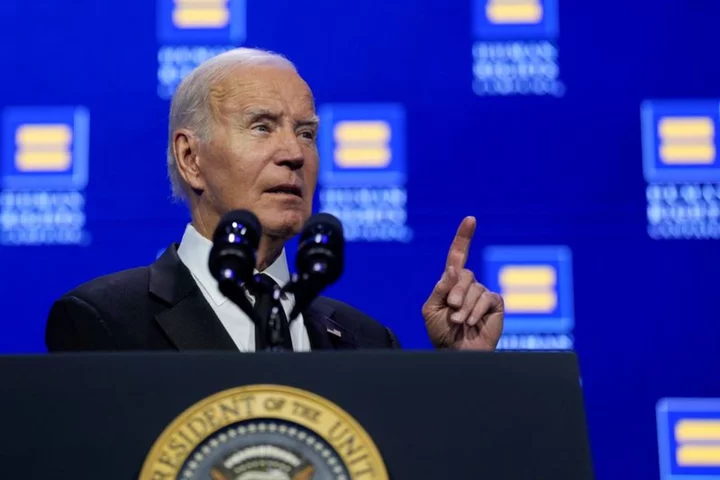The Internal Revenue Service has collected $160 million in back taxes this year by cracking down on millionaires who haven't paid what they owe, the agency said Friday.
The recent effort to target high-income individuals has been boosted by an increase in federal funding provided by Democrats last year through the Inflation Reduction Act. Republicans have criticized the amount of money the IRS is getting, and future funding is uncertain.
In September, the IRS started seeking back taxes from about 1,600 taxpayers with income above $1 million and more than $250,000 in tax debt. So far, the IRS has closed 100 of those cases, collecting $122 million, it said Friday.
Earlier this year, the IRS collected $38 million from more than 175 high-income earners. That brings the total to $160 million so far this year.
"I think that the evidence that we've seen to date, in terms of the amount that we have recovered ... points to this being a highly important effort for us," IRS Commissioner Danny Werfel said on a call with reporters.
In one successful case, an individual was ordered to pay more than $15 million in restitution last month for falsifying personal expenses as deductible business expenses, including the construction of a 51,000-square-foot mansion complete with an outdoor pool and pool house, as well as tennis, basketball and bocce courts, according to an IRS press release. The person also falsified expenses for luxury vehicles, artwork, country club memberships and homes for his children.
Another individual pleaded guilty last week to filing false tax returns and skimming more than $670,000 from his business. The person spent $110,000 on personal expenses and $502,000 on gambling, the IRS said.
The agency's effort to ramp up enforcement aims to narrow what's known as the "tax gap," the difference between the amount owed and the amount actually collected on time by the IRS. The most recent estimate shows that $688 billion was not collected during tax year 2021.
New audits on large corporations
The IRS plans to bring a new focus to cracking down on large corporations that have not been paying the taxes they owe.
The agency will target US subsidiaries of foreign companies that distribute goods in the US and do not pay what they owe in taxes on the profit they earn. It will start sending compliance notices next month to about 150 subsidiaries to "reiterate their US tax obligations and incentivize self-correction," the announcement said.
As new accountants come on board at the IRS in early 2024, they are expected to begin 60 audits of some of the largest corporate taxpayers. The targeted corporations will be selected by the IRS accountants using a combination of artificial intelligence and subject matter expertise that will better detect tax cheating. The use of technology is meant to help avoid burdening taxpayers with needless audits.
An overhaul at the IRS
The Inflation Reduction Act, which included a provision to deliver $80 billion to the IRS over 10 years, has allowed the agency to begin a complete overhaul of its operations. It's working to hire new staff, update technology, improve taxpayer services and audit tax cheats.
The new funds have already helped improve taxpayer services at the IRS. In the 2023 filing season, it answered 3 million more calls and cut phone wait times to three minutes from 28 minutes compared with the year before.
The IRS is currently working on building its own free tax filing program, known as Direct File, that will launch as a limited pilot program next year.
The IRS has also put a plan in motion to digitize all paper-filed tax returns by 2025. The move is expected to cut processing times in half and speed up refunds by four weeks.
Republicans have raised questions about whether the $80 billion investment in the IRS would lead to increased audits for average Americans. Earlier this year, Republican lawmakers were able to reclaim $20 billion of the funding in a bipartisan deal to address the debt ceiling.
The White House argued that the cut won't fundamentally change what the IRS can do over the next few years. Biden administration officials have also repeatedly said that taxpayers earning less than $400,000 a year won't face an increase in audits due to the new funding.









